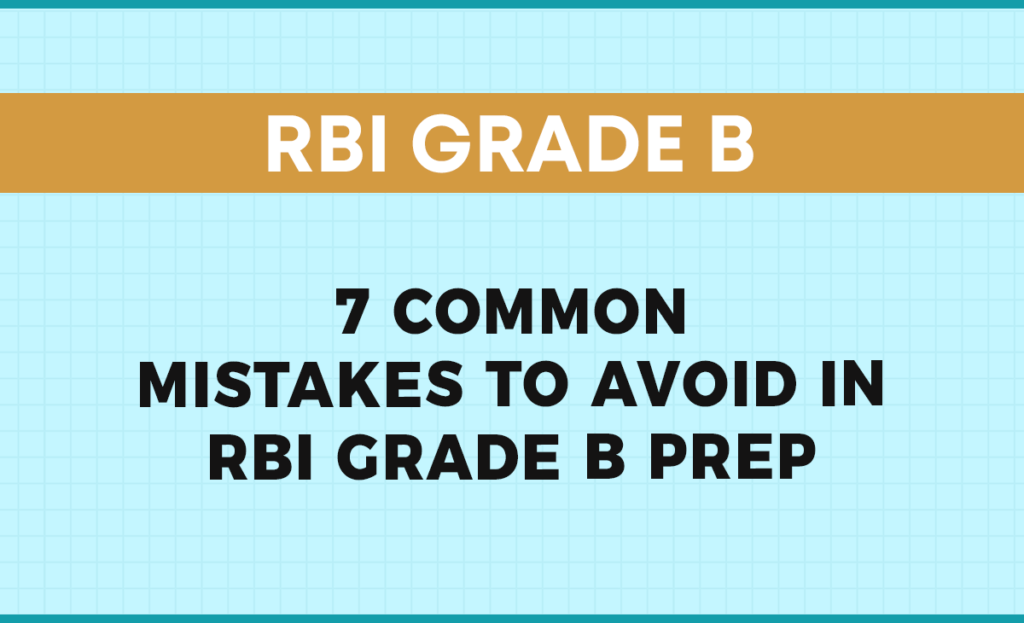Success in the Reserve Bank of India Grade B examination depends on strategic preparation along with maximum concentration. Numerous test-takers with positive intentions end up making frequent mistakes that obstruct their assessment performance.
These seven fundamental errors should be avoided by candidates during their preparation for the RBI Grade B exam:
1. Neglecting the Preliminary Exam
Many candidates devote primary attention to the result in the main while dismissing the value of the preliminary challenge. Failure to pass the prelims phase prevents you from reaching the mains section, making this mistake extremely critical.
You should dedicate proper time to studying preliminary topics along with engaging in speed-based question-solving practice.
2. Inadequate Current Affairs Coverage
The RBI Grade B syllabus puts major importance on examining current events, especially those which concern economics, banking, along finance. Far too many candidates begin their work on current affairs at an inopportune time and fail to provide it with proper attention.
Make daily reading of financial newspapers, along with RBI bulletins and economic surveys into a habit to establish fundamental knowledge of modern events.
3. Poor Time Management During Preparation
Time management problems in preparation cause two problems because students either take on too much material or dedicate too long to study their favorite subjects at the expense of other subjects.
Your study routine should divide lessons into equal portions and devote additional attention to the subjects that present the most challenges. Check your weekly progress to make revisions on your study plan.
4. Ignoring Previous Years’ Question Papers
The previous year’s question papers function as one of the most precious resources for students who aim to succeed in the RBI Grade B competition. The questions these papers contain show the typical patterns used by examiners, together with essential subject material and question difficulty levels.
Your failure to solve these papers will result in a loss of vital understanding that could simplify your preparation process. Students should invest their time solving at least five to seven years’ worth of previous papers.
5. Overlooking the Descriptive Paper
You have to demonstrate English proficiency through written tasks as part of the Phase II descriptive paper, including both essay writing and a précis. Most job applicants from technical fields put off preparing for the descriptive paper until the very end of their exam preparations.
The development of writing clarity alongside proper structure for examiners requires you to practice essays together with letters and comprehension exercises regularly.
6. Relying on Too Many Resources
The digital age typically results in candidates collecting too many study materials, ranging from books to online courses, which leads to excessive information intake. When different resources are used without coordination,n the outcome becomes unclear. Students must limit their material intake to 2-3 top-quality education sources for each subject while obtaining complete mastery instead of working between multiple resources.
7. Inadequate Mock Test Practice
Students benefit from mock tests because these assessments help them develop exam stamina as well as enhance their time management abilities and reveal their knowledge gaps.
The regular testing practice combined with proper analytical review of mock tests remains insufficient for most candidates. Implement planned mock tests in your study schedule and conduct an in-depth analysis afterwards to track your error patterns.
Final Thoughts
A candidate seeking success in the RBI Grade B examination must combine diligent work with strategic preparation methods. Your competitive advantage in the exam will increase when you stay away from these frequent errors. The effectiveness of regular, focused study sessions that span across months will produce superior results than last-minute, intense studying. All the best with your exam preparation!

